Enjoy FREE Shipping on Orders Over $99
DON’T HAVE A COUPON CODE?
Use EZ10OFF At Checkout to Save 10% On Your Entire Order Today!
10 Most Dangerous High Blood Pressure Foods
Hi. It’s Ken Feakins, Head Exercise and Fitness Coach at Healthy Habits. I wanted to give you a few tips to help you improve your heart health and avoid a condition that is becoming epidemic in North America.
Did you know that nearly two thirds of Americans have either high blood pressure or prehypertension, a condition in which blood pressure is higher than normal but not quite high enough to be diagnosed as hypertension. If you have high blood pressure or prehypertension, studies have shown that you can lower your blood pressure by eating a healthy diet emphasizing lean protein, whole grains, low-fat dairy, fruits and vegetables.
Unfortunately, there are also a lot of foods that can hinder your ability to lower your blood pressure. Here are my top 10 foods that you should avoid (or at least minimize) if you’re struggling with hypertension or prehypertension.
Salt

Salt and sodium are villains when it comes to living with high blood pressure and heart disease. The Dietary Guidelines for Americans suggest that people with hypertension or prehypertension limit their daily sodium intake to just 1,500 milligrams. Currently, the average American eats more than twice that amount, or about 3,400 milligrams a day.
More than 75% of the sodium you eat in a day comes from packaged foods, not what you add at the table with a saltshaker. Some of the saltiest sources of pre-packaged foods include frozen pizza, deli meats, fruit and vegetable juices, canned soup and canned or bottled tomato products.
Deli Meat
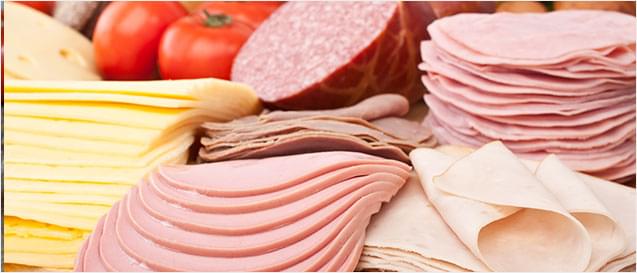
Processed deli and lunch meats can be real sodium bombs. (Bacon counts in this category, too.) These meats are often cured, seasoned and preserved with salt. A 2 oz. serving of some lunch meats could be 600 milligrams of sodium or more. If you have a heavier hand with the cold cuts, you’ll get even more sodium. Add bread, cheese, condiments or pickles and your simple sandwich can quickly become a sodium trap.
Frozen Pizza
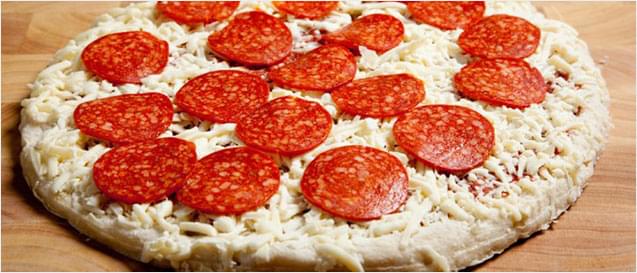
All pizzas can be bad for those watching their sodium intake. The combination of cheese, cured meats, tomato sauce and bread adds up the milligrams quickly. But frozen pizza is especially dangerous for hypertensive people. To maintain flavor in the pizza once it has been cooked, manufacturers often add a lot of salt. One sixth of a frozen pizza can be as much as 1,000 milligrams, sometimes even more. The thicker the crust and the more toppings you have, the higher your sodium number will climb.
Pickles

Salt is a huge part of food preservation. The salt stops the decay of the food and keeps it edible longer. However, salt can take even the most innocent cucumber and make it a sodium sponge. The longer vegetables sit in canning and preserving liquids, the more sodium they can pick up. A whole dill pickle spear can contain as much as 300 milligrams of sodium. Reduced sodium options are available, containing about 100 milligrams of sodium each.
Canned Soups

They’re simple and easy to prepare, especially when you’re in a time-crunch or not feeling well. However, canned soups are filled with sodium. Canned and packaged broths and stocks can be bad, too. Some soups can have 890 milligrams of sodium or more in just one serving. If you consume the entire can, you’ll be taking in 2,225 milligrams of sodium. Low-sodium and reduced-sodium options are available. A better option is to make your own from a low-sodium recipe to keep the salt in check.
Canned or Bottled Tomato Products
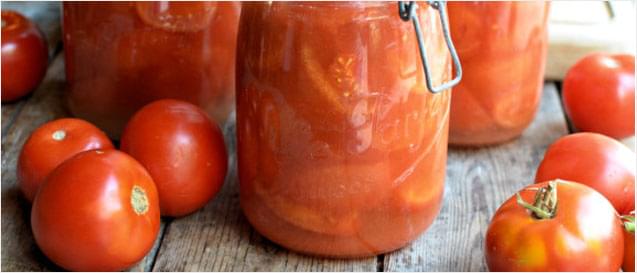
As a rule, tomato products are problematic for people with hypertension. Canned tomato sauces, pasta sauces and tomato juices are all high-sodium culprits. A half-cup serving of classic marinara sauce can have more than 450 milligrams. A cup of tomato juice comes in at 650 milligrams. You can often find low-sodium or reduced-sodium versions of all of these. For people looking to keep their blood pressure down, these alternative options are a smart choice.
Sugar

You likely already know that excessive sugar intake has been linked to increased cases of weight gain and obesity. But did you know that high sugar intake is also linked to high blood pressure? Sugar (especially sugar-sweetened drinks) has contributed to an increase in obesity in people of all ages. High blood pressure is more common in individuals who are overweight or obese. Currently, the USDA does not have a recommended daily limit for sugars, but the American Heart Association recommends that women limit added sugar intake to 6 teaspoons per day, and that men keep themselves restricted to 9 teaspoons per day.
Chicken Skin and Packaged Foods
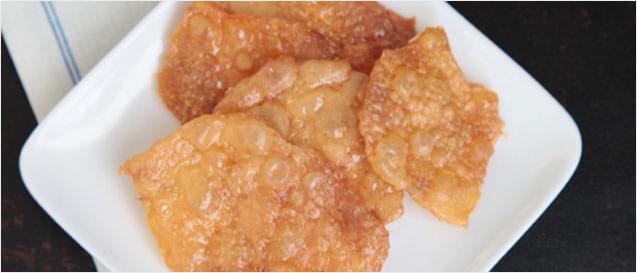
People with hypertension should avoid saturated and trans fats. Chicken skin is high in saturated fat, as are full-fat dairy, red meat and butter. Trans fats are created in a process called hydrogenation. Liquid oils are infused with air to make a solid oil. Trans fats are found naturally in small amounts in fatty meats and dairy products. However, the biggest contributor of trans fats is packaged and prepared foods. Hydrogenated oils increase packaged foods’ shelf life and stability.
According to the Centers for Disease Control and Prevention, consuming too many saturated and trans fats increases your LDL cholesterol (or, “bad” cholesterol). High LDL levels may worsen your hypertension, and may eventually lead to coronary heart disease.
Coffee
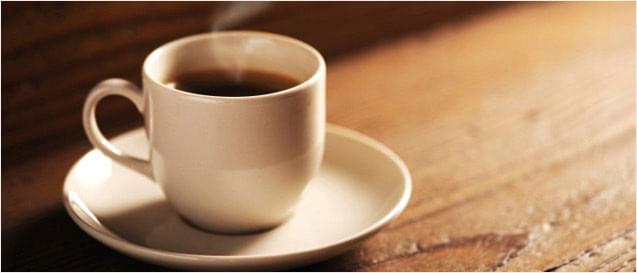
If you have hypertension or prehypertension, now may be the time to kick your coffee habit. Your morning “cup of joe” (or cups) can actually cause a temporary spike in blood pressure. If you’re a regular coffee drinker, this may be contributing to your hypertension. In fact, any caffeinated drinks (including soda or caffeinated tea) may cause an increase in your blood pressure.
Alcohol

When it comes to high blood pressure, alcohol is a double-edged sword. Small to moderate amounts of alcohol may actually lower your blood pressure, but drinking too much alcohol can increase your blood pressure, even for people who only drink occasionally. According to the Mayo Clinic, having more than three drinks in one sitting can cause a temporary spike in blood pressure. Repeated drinking can lead to long-term blood pressure problems.
Also, alcohol can prevent any blood pressure medications you may be taking from working effectively. As well, alcohol is full of calories and can lead to weight gain. People who are overweight or obese are more likely to have high blood pressure.
Smart Eating Strategies

If you’ve been diagnosed with hypertension or prehypertension, a few smart-eating strategies can help you prevent further blood pressure spikes and possibly even reduce your blood pressure. Making a few easy swaps, such as looking for reduced-sodium or trans-fat free options, can help you cut back on the bad foods and find better options.
It’s important to remember that eating and hypertension aren’t about deprivation. Instead, it’s about eating smart and healthy for your heart and entire body.
Speaking of eating smart, did you know that there’s a new, all-natural way to get the vitamins and minerals you need to reduce both systolic and diastolic blood pressure?
In fact, this simple, all-natural and affordable treatment has been clinically proven to help reduce blood pressure levels, improve blood circulation, lower bad cholesterol and balance blood sugar levels—while also delivering a jolt of antioxidants to your cells to promote improved overall health.
Would you like to learn how you can reduce your blood pressure to healthy levels quickly, safely and affordably?
We show you exactly how to do it HERE:
And don’t forget—sweat is magic! Work up a good sweat every day to make your health and fitness wishes come true,
Keep fit and have fun!